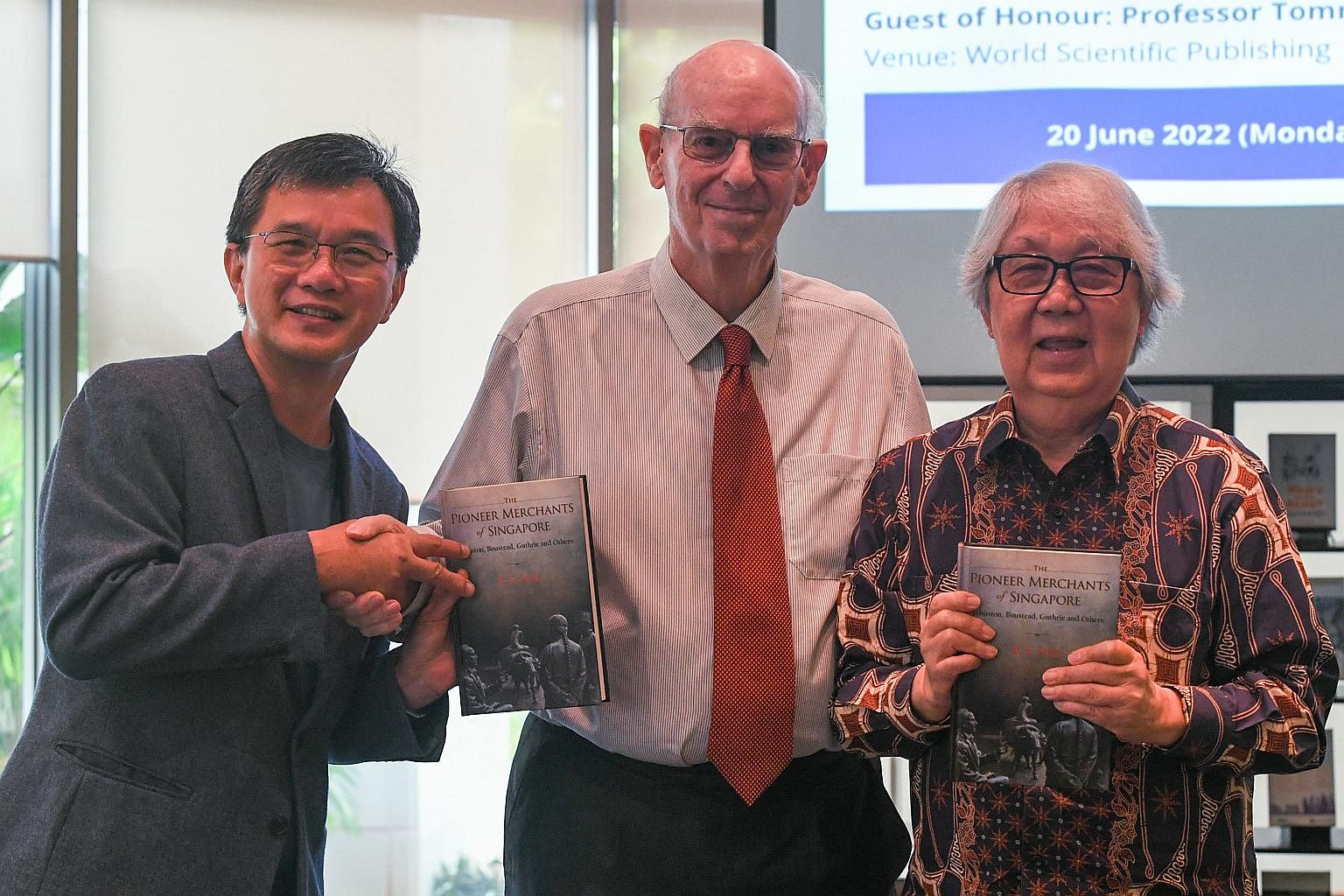SINGAPORE - They were the pioneer merchants of colonial Singapore, moving from abroad in the 1800s to invest in a free port and help turn it into a successful trading colony.
While much has been written about modern Singapore's founder Sir Stamford Raffles and some about First Resident of Singapore William Farquhar, little has been published about the colonial business community here.
A new book launched on Monday (June 20) aims to turn the spotlight on the life of merchants like Alexander Laurie Johnston, who arrived in Singapore in 1820 and later became the first chairman of the Singapore Chamber of Commerce.
Titled The Pioneer Merchants Of Singapore: Johnston, Boustead, Guthrie And Others, the book was written by retired banker Richard Hale.
Singapore's Ambassador-at-Large Professor Tommy Koh, who was guest of honour at the book launch, said: "When the British founded Singapore... there was no guarantee that it would succeed. It had a good harbour, it was a free port - and those are assets.
"But whether or not it will succeed really depends on the (business) sector."
Mr Hale's book presents the business community's perspective, said Prof Koh, who noted that little has been written about the first 10 to 20 years of colonial Singapore.
"Those are the most important years that either make or break a country or an institution," he added.
Johnston was not just active in the business community, he was one of the colony's first magistrates.
His contributions were recognised through Johnston's Pier, which was completed in 1856. It was located in Collyer Quay.
A new pier meant to replace it was mired in some controversy when the Governor of the day Cecil Clementi decided to name it after his predecessor Hugh Clifford.
Clifford Pier was officially opened in June 1933, much to the disappointment of the business community which protested the decision and boycotted the event.
Besides filling a knowledge gap about colonial Singapore's early years, Mr Hale, 85, said he wanted to correct inaccuracies and misconceptions about historical facts.
For instance, he said, many believe that funding for the Boustead Institute - a three-storey centre for visiting seamen built on a site donated by the Tanjong Pagar Dock Company - had come from another pioneer merchant, Edward Boustead.

Mr Hale's research showed that money for the centre, which was inaugurated in 1892 and demolished in 1976, had been donated by Boustead's executors, after his death.
"Minor detail... but the facts should be correctly reported," he said.
While doing research for the book, Mr Hale said he returned to original sources as much as possible. These included government documents, private letters, newspapers and reports.
"I didn't actually quote or use other people's books, because so many of them have inaccuracies," he said, adding that many who had written about history in the past did not have access to present-day resources and archival materials.
Besides archives in Singapore, Mr Hale said he also accessed those from Britain, Denmark and Australia.
Prof Koh hopes others will follow in Mr Hale's footsteps and write about early Singapore from various angles, including about non-European merchants who were not focused on in Mr Hale's book.
The book, published by World Scientific and supported by the National Heritage Board, retails at $46 at all major bookstores. It can also be purchased online here.


